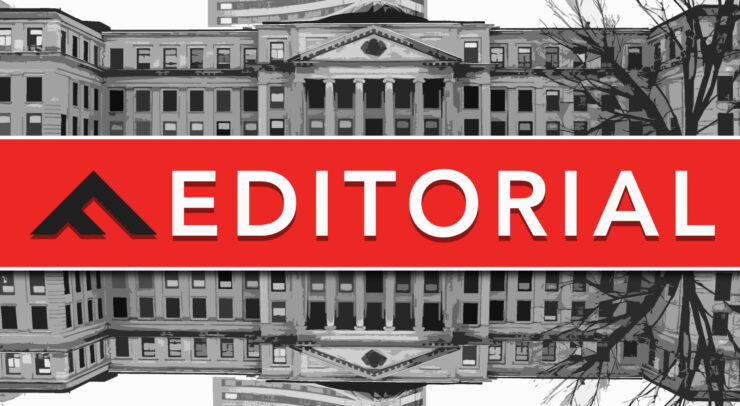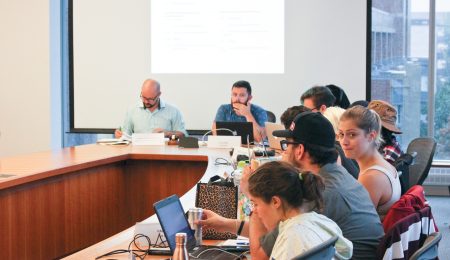Minutes and streams from October and December meetings are currently unavailable
On Dec. 7, the University of Ottawa held its Board of Governors (BOG) meeting in the midst of a sit-in in the hall of its main administrative building. At the meeting, the BOG not only discussed the controversial President’s Action Committee on Antiracism and Inclusion, but also released the President’s Advisory Committee on Mental Health and Wellness Final Report.
These discussions touched on two important topics, and were pointedly insightful, helping anyone who tuned in understand their university administration’s plans for the near future in terms of anti-racism and mental health.
With the BOG’s audio streamed on YouTube, all students with access to the internet could watch the meeting in real time — which is great. Once the meeting went in-camera, the stream went private — as is protocol for in-camera sessions.
In the past, after completion, the recorded sessions were available to watch by the general public on YouTube. However, they have now all been made private or taken down. Without the recorded lectures available online, those who are unable to attend are left unaware of what occurs during the meeting.
Given that BOG meetings are scheduled on Mondays at 4 p.m., many potential viewers are in class or at work and unable to attend.
In addition to the now-missing archived streams, the detailed minutes from the Dec. 7 meeting are also unavailable — only the agenda is listed. This is also the case for the minutes of the Oct. 26 meeting which dealt with the U of O’s support staff (PSSU-SSUO) strike and the one following professor Verushka Lieutenant-Duval’s use of the ‘N-word.’
The only way the minutes could not be made available to the public is if they were not approved — and since none of the BOG’s were nullified, this is most likely not the case.
As a result, this lack of transparency is extremely concerning.
According to University of Ottawa By-Law No. 1 article 4.13 Record of Proceedings, “After approval by the Board, the minutes of the open session proceeding of the meeting of the Board, shall be made available by the Secretary-General to the public.”
Additionally, media outlets (such as the Fulcrum) are not permitted to record the BOG meeting without the consent of the Chair and neither are students.
The same U of O by-law article states non-authorized recordings “except for any audio and/or visual recording of a meeting of the Board authorized by the Chair [or] the use of any audio and/or visual recording device during a meeting of the Board is not permitted.”
There is a trickle-down effect of lack of transparency here. Without a transparent administration, and these detailed BOG archives (in written or audio form), it’s more difficult as journalists — as well as students — to hold the administration accountable on anything.
This issue is one that extends beyond the offices of Tabaret, and is restricting the voices of news outlets, advocacy workers, and students within the university ecosystem.
With that in mind, we emailed the university’s media relation manager on Jan. 28 asking for the minutes and stream to be made public — we have yet to hear back.
Transparency in these matters should be a given. Leaving the streams aside, the institution according to its own rules, is required to make the minutes of previous meetings available, this shouldn’t be something that defies the conventional.
We shouldn’t have to ask.
Editorials are written by the Fulcrum’s thirteen-person editorial board and express the shared views and opinions of the Fulcrum’s editorial staff. To share your own views, email editor@thefulcrum.ca.




